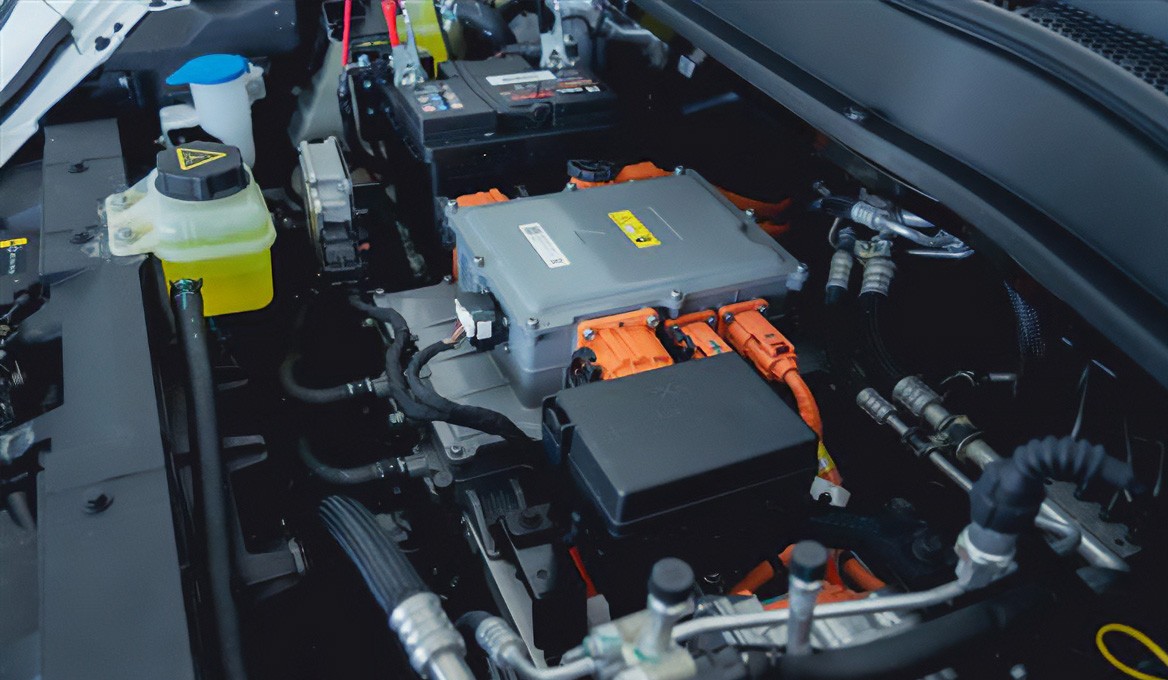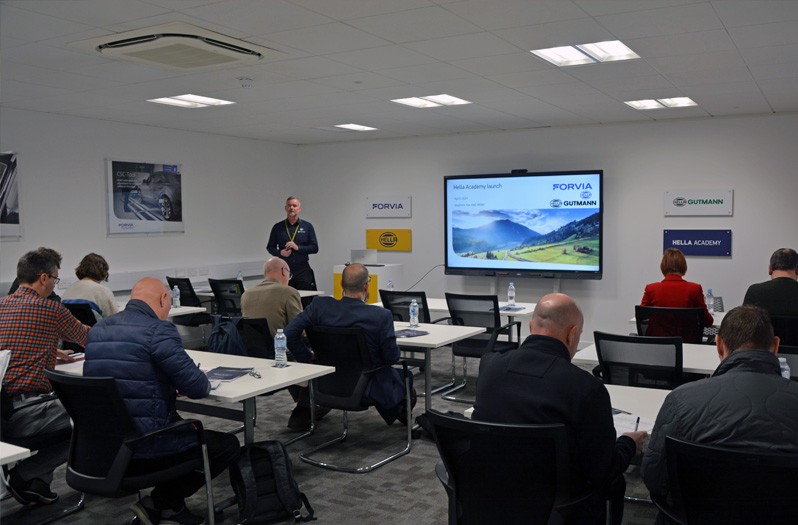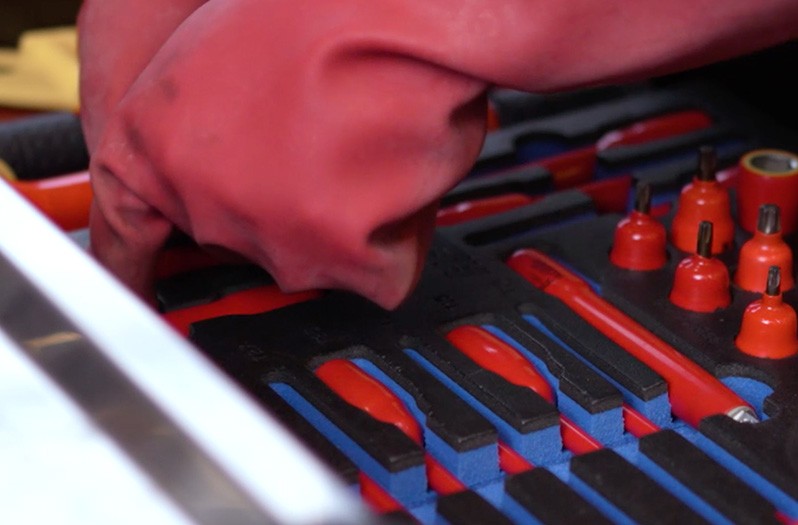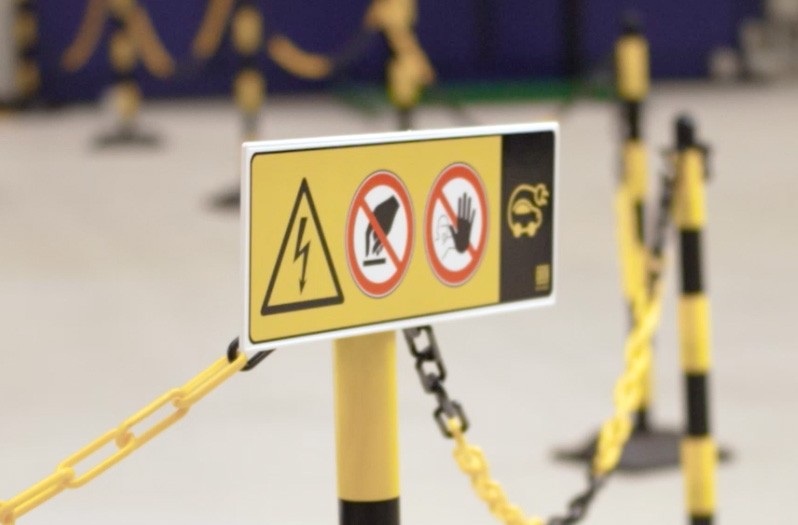Just 5 steps to become an e-car workshop – a guide

Let's start with a number that has lots of zeros: 4.3 million. This is the number of electric vehicles that Statista predicts will be on European roads by 2029. And what happens if one of them breaks down? That is the question that you, as independent workshops, must now ask yourselves. The window of opportunity is still wide open to position yourself as an e-car workshop and thus to gain an edge over your competitors. Because, even if you are currently shying away from such a conversion, you will ultimately have to serve customers who drive electric cars.
However, there are a number of things you need to bear in mind to ensure the conversion to this new technology and working with it both run smoothly. As a manufacturer of high-quality electric car components and workshop accessories, we at FORVIA HELLA are well aware of them all. We know how crucial a well-thought-out plan is in order to achieve the smooth transformation of your own individual workshop. This article is designed to do just that. We show you how workshops can prepare for the repair and maintenance of vehicles with electric engines.
So let's set off on the road to your own e-car workshop – step-by-step:
2. Building up an infrastructure for the e-car workshop
If you want to set up your e-car workshop, the installation of special lifting platforms is essential. Electric cars place special demands on lifting technology in order to enable mechanics to gain access to the battery and other components. The platforms must also be suitable for the weight and design of electric vehicles.
Charging stations for electric engines should also be considered in the set up phase. Such devices allow vehicles to be charged while work is being carried out on them – a real service advantage for customers. It makes sense to set up the charging infrastructure, together with the lifting platforms, in a visibly separated high-voltage area of the workshop.
Finally, in addition to the technical equipment, the digital aspect must also be considered. Software solutions for managing workshop processes lead to gains in efficiency and in the overview, as they help to coordinate combustion engine and electric car repairs when it comes to timing and personnel resources.
5. Securing replenishment of components
The car is in your e-car workshop, the diagnostic device has detected the defect, the tools with plastic handles are ready – all that's missing is the spare part. However, here too, workshops need to rethink and prepare well in advance. This is an important point because many dealers still specialise in parts for combustion engines. Tracking down a wholesaler who stocks a range of e-car aftermarket parts that can be called up at short notice can be difficult – especially if a workshop has e-cars from frequently changing manufacturers on the lifting platform.
As aftermarket professionals, we know how much it saves costs and avoids hassle if workshops and wholesalers can get all the relevant spare parts from a single source – and, of course, without compromising on quality. We are therefore systematically extending our range of high-quality e-car components.
Get an overview in our catalogue to find out which spare parts are particularly important and then decide on a wholesaler who can supply you with them quickly, on a large scale, and reliably.
Making yourself future-proof with your own e-car workshop
Adapting an e-car workshop to electromobility requires training, equipment and infrastructure – and significant financial investment. In fact, experts estimate the investment costs to be in the mid-five-figure euro range per workshop. However, the return on investment for such courageous workshop heroes goes much higher: According to Statista, the global market volume could rise to 990.4 billion USD by 2029. So the investment in expanding your own workshop for e-mobility services is set to be recouped in the medium term.
And if you need help with this: The HELLA Academy and also the HELLA Aftermarket e-car parts range are at your disposal.


